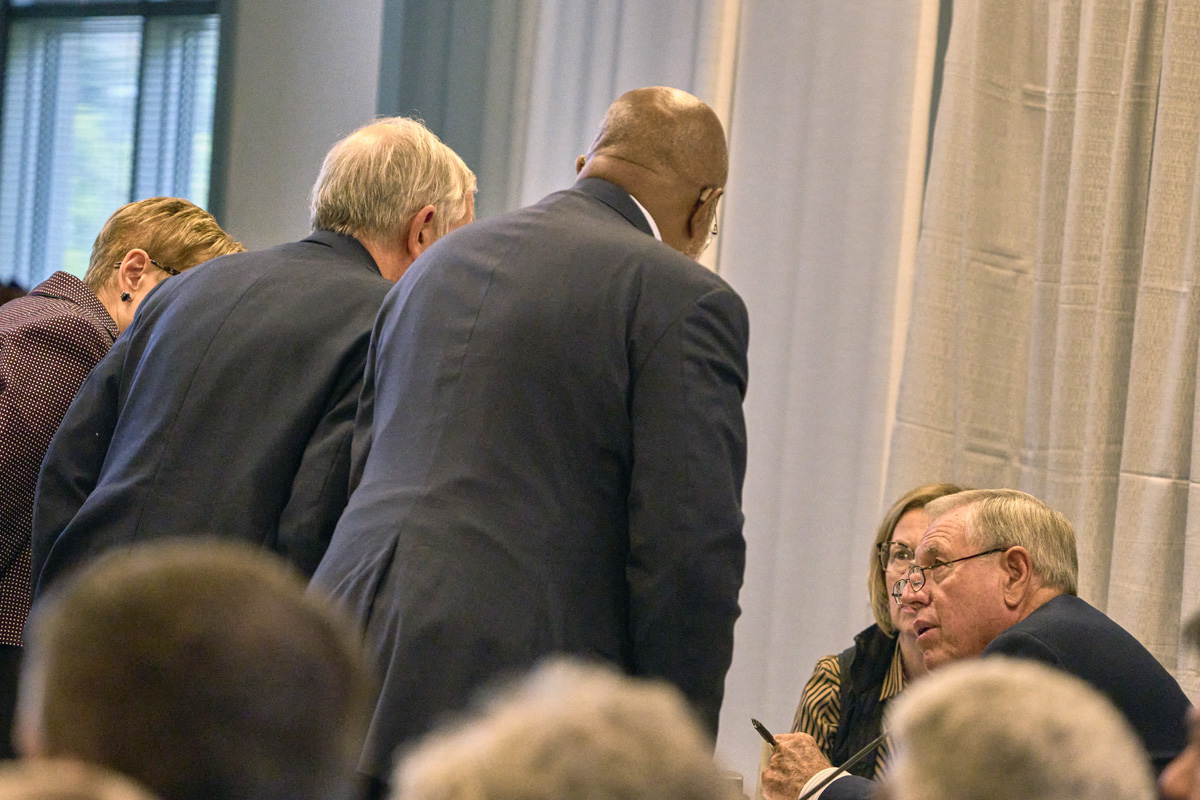Key points:
- Jurors heard testimony about three different disputes that gave rise to the complaints and the subsequent charges.
- Witnesses accused Carcaño of repeatedly overstepping a bishop’s authority and then taking retaliatory measures against her critics.
- The Rev. Paul Extrum-Fernandez, the conference’s chief benefits officer, said tension in the conference has been building over the years. “I would say I experienced a culture of suspicion and distrust,” he said.
The church trial of United Methodist Bishop Minerva G. Carcaño continued with witnesses testifying on how they think she violated church law.
Carcaño — who has led the California-Nevada Conference since 2016 — faces four charges of violating church law, stemming from three complaints. She stands accused of disobedience to the order and discipline of The United Methodist Church, the undermining of another pastor’s ministry, harassment and fiscal malfeasance. The bishop has pleaded not guilty to all charges.
On the afternoon of Sept. 19 and into Sept. 20, the jury of fellow United Methodist clergy heard witnesses for the counsel for the church — essentially the prosecution. The trial is taking place at the offices of Wespath Benefits and Investments in Glenview, Illinois, a Chicago suburb.
Jurors heard testimony about three different disputes that gave rise to the complaints and the subsequent charges.
“It is up to you to determine from the evidence presented whether the church has proven the charges against the respondent by clear and convincing evidence,” retired Bishop Alfred Gwinn, the presiding officer, told the jury at the start of the trial.
“The respondent, Bishop Carcaño, is presumed to be innocent until the conclusion of the trial process, when you will render a verdict on the bill of charges and specifications.”
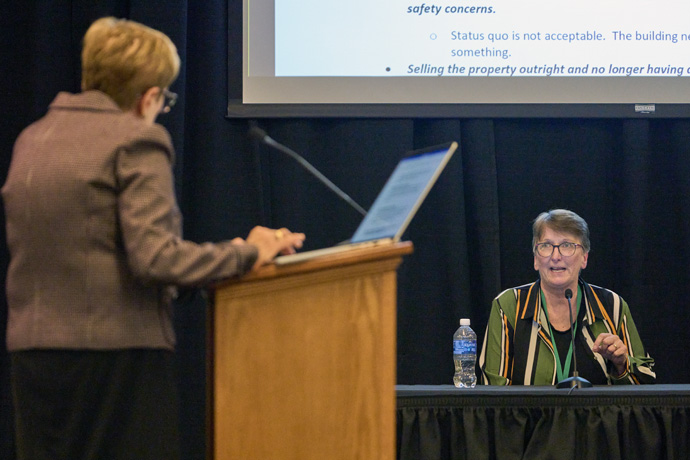
Carcaño, for many across the denomination, is a “respected, beloved bishop,” the church’s counsel the Rev. Janet Forbes acknowledged in her opening arguments. The denomination’s first Latina bishop, elected in 2004, has earned denomination-wide respect for her championship of immigrants and other marginalized people.
In their testimony, the witnesses — who had all served in the California-Nevada Conference — painted a different picture of her administration of conference ministry, especially in late 2021 and early 2022. They accused her of repeatedly overstepping a bishop’s authority and then taking retaliatory measures against her critics. The bishop has been suspended with full pay and benefits since March last year.
“I would say the tone and the spirit amongst the staff and really Bishop Carcaño's engagement with the staff did fundamentally change after mid-December (2021) and onward,” testified the Rev. Mike Harrell, who served as assistant to the bishop. He said she isolated herself from the staff and began talking about the need to make changes to staff that she felt had betrayed her.
To watch
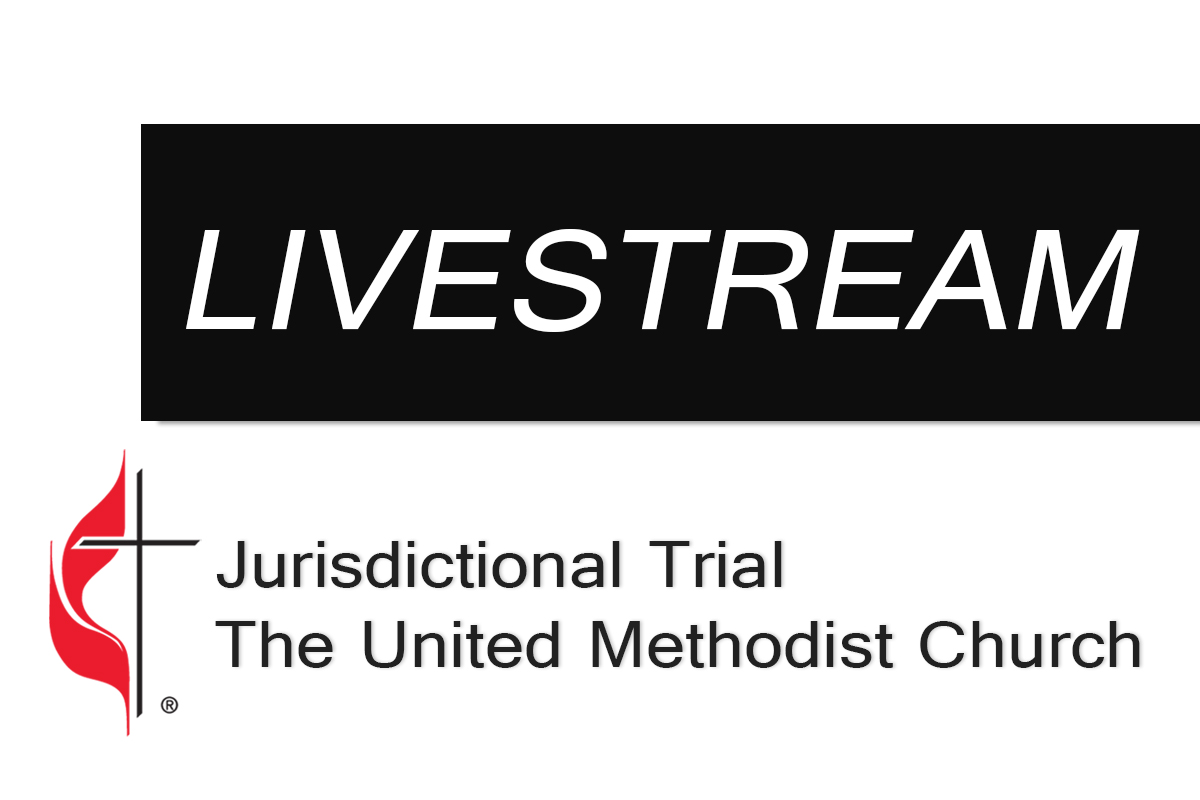
Use of parsonage
One of the issues in the case is the hiring of the bishop’s daughter Sofia in 2021 as an administrative assistant to then-Bay District superintendent, the Rev. Staci Current, and the arrangements for the daughter to use a San Francisco church parsonage rent-free as her main residence.
The bishop also faces accusations that she allowed the use of $100,000 from the First St. John’s Fund — money designated for church development in San Francisco — to renovate the parsonage.
The Rev. Jorge Domingues, California-Nevada’s executive director of connectional ministries and one of those who filed a complaint, testified that he raised concerns about the hiring.
“I raised concerns (about) the appearance of nepotism that the hiring could have, that it could bring a cloud, that it could affect the ministry of the episcopal office and the conference itself,” Domingues said. He added that he also raised concerns that “our policies were unfortunately not very clear about the practice of nepotism.”
Bishops appoint superintendents to help oversee pastors and churches in a district. As an administrative assistant, the bishop’s daughter would not directly report to her mother. But Domingues said he raised concerns again when Carcaño told him her daughter was living in a church parsonage, a benefit not offered to other administrative assistants.
After he brought his concerns to the bishop and the conference’s human resources team, he said the bishop “ceased to have any contact or conversation with me.” He added that their relationship deteriorated from there and he heard from a co-worker that the bishop wanted to dig into his work history at the United Methodist Board of Global Ministries, the denomination’s mission agency where Domingues worked before coming to the California-Nevada Conference.
The Rev. Kristin Stoneking, a district superintendent in the California-Nevada Conference and another complainant, also testified. At the time of the complaint, she was a pastor and the chair of the conference’s Council on Finance and Administration. She testified that the finance council learned that a fund designated for church development in San Francisco, the First St. John’s Fund, was being used for the parsonage’s renovation with the authorization of the bishop’s cabinet of district superintendents.
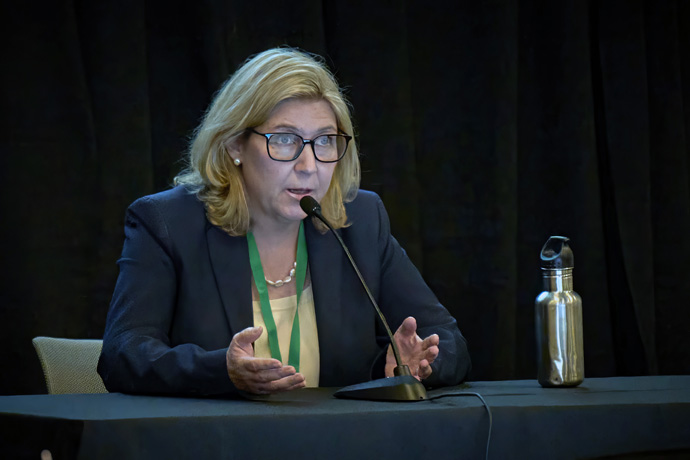
Stoneking testified that the cabinet was not the proper body to authorize the fund’s use. Instead, that usually was handled by the conference’s core leadership team. She said the fund’s use on the parsonage raised all sorts of questions.
“Probably foremost among them was question about the First St. John's Fund and its use for what seemed to be personal benefit and the reporting of the compensation that it represented because it was claimed as a legal residence for the bishop’s daughter,” Stoneking said.
Stoneking also testified that there were times the bishop said she was using the parsonage as a second episcopal residence and other times when she said it wasn’t a second residence.
“I'm on the episcopal residency committee, and we were never consulted,” Stoneking said.
She also went on to say that while she felt she had a very good working relationship with the bishop prior to the parsonage situation, that changed when she raised questions. She said she learned from her district superintendent that the bishop had plans to appoint her to a church that would represent a $40,000 salary cut even though neither she nor the growing church where she currently served had requested an appointment change.
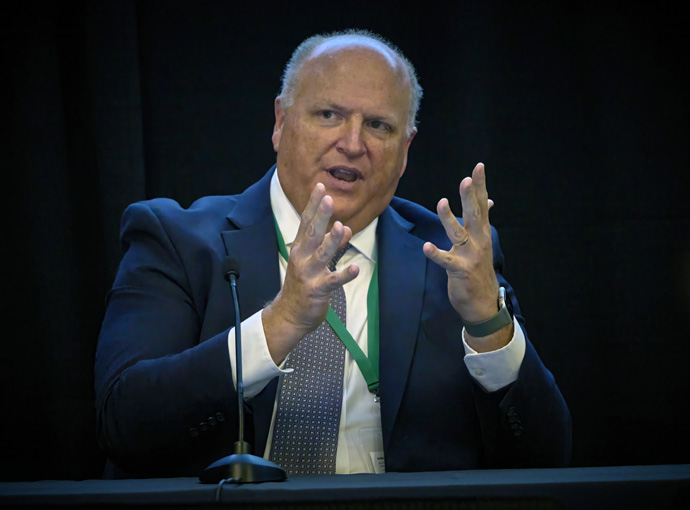
The Rev. Craig Brown, who was the conference’s executive director of congregational development at the time, was not a complainant but was involved with many of the disputes that gave rise to the complaints. After he raised concerns, he said he also faced retaliation in the form of an appointment to a very progressive church seeking a pastor who was LGBTQ and a person of color. “I’m not that,” he said.
Brown testified that he grew so frustrated with the bishop’s leadership that he looked for other options and now he is the pastor of a Free Methodist church in Seattle.
Subscribe to our
e-newsletter
Trinity property
Diane Knudsen, the conference’s executive director of finance and administration, was among those who raised concerns about nepotism and the parsonage. But her complaint dealt with another dispute: the handling of the property of the closed Trinity United Methodist Church in Berkeley, California.
In her testimony, she said the bishop’s actions in handling the property usurped the authority of the conference board of trustees, which wanted to vet the brokerage firm used in selling the property. Both Domingues and Stoneking noted the bishop had told them that she felt Knudsen was undercutting her authority and needed to go.
Knudsen has served as the conference’s head of finance for 27 years under multiple bishops.
The Rev. Scott Campbell, Carcaño’s counsel, showed a video of a joint Zoom meeting of the board of trustees and a task force on the Trinity property where the matter came to a head.
Knudsen testified that she felt the video supported her reading of the situation. Campbell noted that it would be up to the jury members whether they agreed with her interpretation.
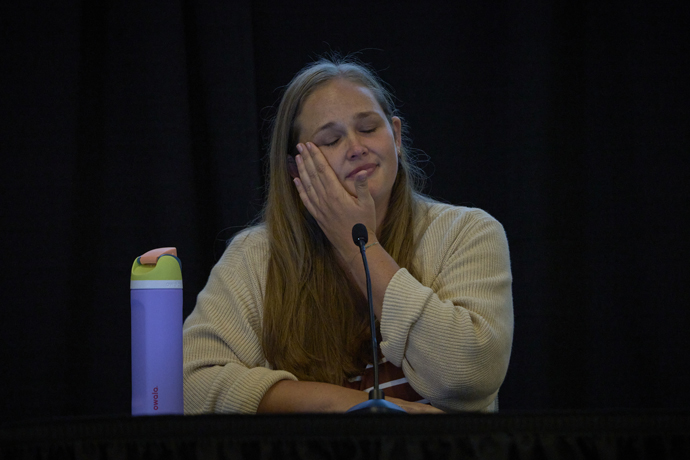
Pastor’s pregnancy
The Rev. Chelsea Constant filed the third complaint at issue in the case. Constant testified that the bishop denied her 12 weeks of uninterrupted maternity leave authorized by the Book of Discipline, the denomination’s law book. The Discipline says: "Maternity or paternity leave, not to exceed one-fourth of a year, will be available and shall be granted by the bishop and the cabinet... ."
Constant and the Rev. Kathy La Point-Collup, senior pastor of Asbury United Methodist Church in Livermore, California, both testified that the bishop retaliated against Constant in the new mother’s appointment. The bishop appointed Constant to a three-quarters-time appointment at Asbury, where she was associate pastor, and only a quarter time appointment to a planned new church start in 2020.
She said that her district superintendent, the Rev. Shinya Goto, told her the bishop agreed for her to have only eight weeks so that her maternity leave would not overlap with the appointment calendar year. She eventually received 12 weeks, but with the altered appointment than what was initially planned.
“It was The United Methodist Church that taught me that human dignity is sacred to God and must be protected and upheld and celebrated and cherished,” Constant said. “And the experience of being harassed as a pregnant woman specifically by my bishop around my pregnancy, my motherhood, I felt like my human dignity was being ignored is probably the best word I can put toward it.”
Campbell noted that Constant sought to have a face-to-face meeting with the bishop, but Goto stood in the way. Campbell asked Goto why he did not allow such a face-to face meeting to take place.
“I thought that if she met with Bishop Carcaño, the situation was just going to get worse,” Goto said. “And so what I tried to do was to be the mediator and try to handle that.”
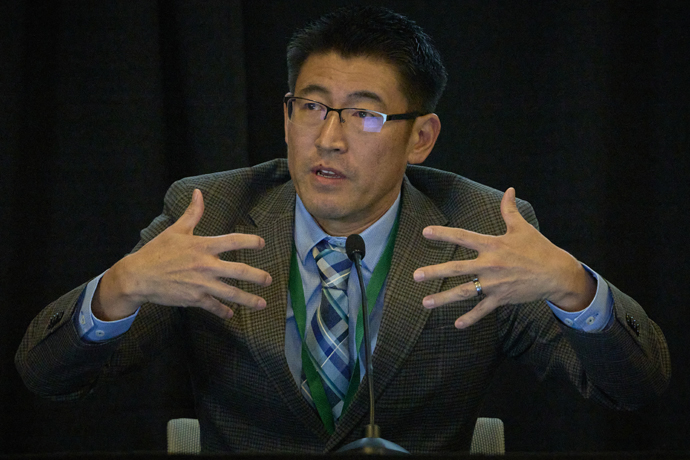
A tough situation
The Rev. Debra Brady, a former district superintendent and now pastor of First United Methodist Church in Modesto, California, said she raised concerns that Constant might be able to file a civil suit against the conference.
Brady testified that she has “never seen a bishop be more tender and caring in pastoral care than Bishop Carcaño.”
And yet, she added, the bishop could also be “cuttingly fierce.”
Brady added that she was particularly concerned about the centralization of decision-making within the bishop’s cabinet before other elected bodies in the conference were allowed to discuss issues.
The Rev. Paul Extrum-Fernandez, the conference's chief benefits officer, said tension in the conference has been building over the years.
"I would say I experienced a culture of suspicion and distrust," he said. "Also, clearly, there were people that are angry about the perceived, I'd say, mistreatment of the bishop because of the suspension. I think there are many others that are quite fearful of retribution and retaliation because of the misuse of episcopal power and authority. And then there's a lot more people that are just simply confused about what has happened or is happening in the life of the annual conference. It's going to take a significant amount of emotional and spiritual repair work to get out of this, to move forward. You know, we've got to address the brokenness of our community."
The first witness defending Bishop Carcaño was called late in the afternoon on Sept. 20. UM News plans to report on witness testimony on behalf of the bishop in its Sept. 21 report.
Hahn is assistant news editor for UM News. Contact her at (615) 742-5470 or newsdesk@umcom.org. To read more United Methodist news, subscribe to the free Daily or Friday Digests.

